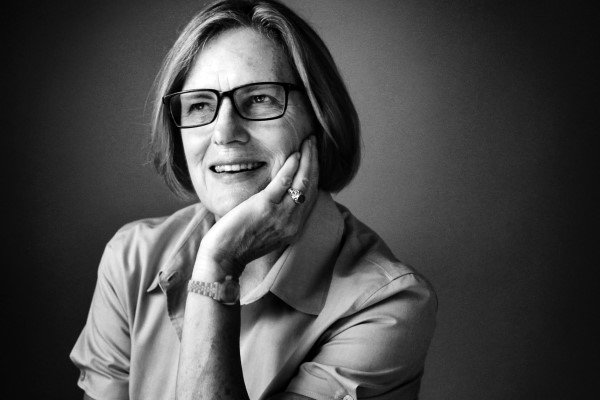Terra Alpha Voices highlights and commends the thought leaders augmenting our investment research and evolving impact efforts. Each subject is a visionary in their own right, supplementing Terra Alpha’s strategic vision and lending us subject matter expertise cultivated across prolific careers and diverse lived experiences. This series, created in partnership with author and photographer KK Ottesen, seeks to shed light on the persons themselves more than their illustrious careers; it is our people and their commitment who set Terra Alpha apart and propel our mission forward through the most challenging of circumstances.
Kathryn Sullivan, PhD
Kathy Sullivan is a scientist, astronaut and explorer. She is the first American woman to walk in space and the first person to travel both to space and to the deepest part of the ocean. Sullivan was a crewmember on three NASA Space Shuttle missions, served as Undersecretary of Commerce for Oceans and Atmosphere, and as Administrator of the National Oceanic and Atmospheric Administration (NOAA).
What experiences as a kid got you hooked on exploring and space?
I was an early and avid reader. I was always adventurous. You know [the notion of] the daughter always with the mother and the son always with the dad – that’s not the way it was in our house. My brother and I were both very much engaged with both parents. So I felt welcome in any topic or any activity. Was always curious about how things worked.
I remember an assignment to bring our Christmas list into kindergarten. Everything I was interested in on my Christmas list that year was what you would have called a toy for boys. Because they moved, they did interesting things; I think they were probably all guns. But my parents being my parents, wouldn’t say, “Oh, dear, we can’t send you to kindergarten with that list.” You know: You don’t get to edit what she’s interested in. I have a fairly vivid recollection of how nonplussed the kindergarten teacher was when she came to Kathy’s list and it was all these weird things: “Oh, my god, our little gun moll.” But my parents’ influence inoculated me against being more pushed back by her comment than maybe I would have been otherwise. Makes a big difference.
Going into space for the first time, was there anything that surprised you, that you were not expecting?
Happily all the training is designed to make sure that no real big unanticipated thing throws you badly off-course. Happily, as good as the training is, I don’t think there’s anything that can prepare you for how awe-struck you’re going to be by your first sights of Earth and how hugely fun it is to play around in zero gravity. And, if someone ever figures out how to train someone to not be surprised by either of those, I will personally tear up the formula. You want to be stunned by those.
As the first person ever to have gone both into space and to the deepest part of the ocean – experiences most people will never have – how do you translate insights from what you’ve seen into something people can understand?
I guess my approach to it is to try to make people wonder. To make people see it as akin to something they already know or cherish or hold deep. Because, I don’t think people change their mind or their actions usually just by hearing something. But by experiencing or feeling something. So if you can take a subject that has seemed very distant and esoteric to them and, for a moment, make it seem like, Oh, wait. That is in my world. Oh, wait. I do get that. So it becomes their sense of things, as opposed to: Well, I heard someone say that. Then, I think there’s a chance for a more profound impact.
Did any of what you saw reshape the way you saw the Earth, your commitment to taking care of it?
What grew in me was a deep appreciation for how powerful the perspective we can have on our planet from space is. I loved having that view out the window – but that was increasingly not very satisfying. I didn’t want to just be the person who could come back and sort of crow to you about what it looks like out the window. I wanted to be more involved at an interface where the power of the space perspective and the data, the understanding of our planet we can get from space and other scientific instruments, was brought to bear. I wanted to make the view I had had matter. Not just for dinner talk, but in more substantive, practical ways. And that was part of what drew me to NOAA, because, to me, NASA’s really much more about the next new thing – the next new satellite, the next new instrument, the next new measurement scientifically valuable to make. And NOAA is about providing information to people in a way that meshes with their decision-making needs. It’s data turned into insightful information. And delivered in a way that makes it readily actionable for something that you’re dealing with.
And then the end goal is…
Well, for me, the end goal is helping us live wisely and well on this planet.
Given the state the planet is in, how do you feel we’re doing?
To be honest about it, we’re not great at it.
Does that frustrate you? Do you feel like we need to light a fire under people in order to figure out how to live more wisely on this planet? Do you feel a sense of urgency?
I’m not a swordfight person. I’m not the one who’s going to grab my sword and man the barricades. At this stage, I’m more interested in trying to be an influencer on macro patterns in the system and of individuals in it.

